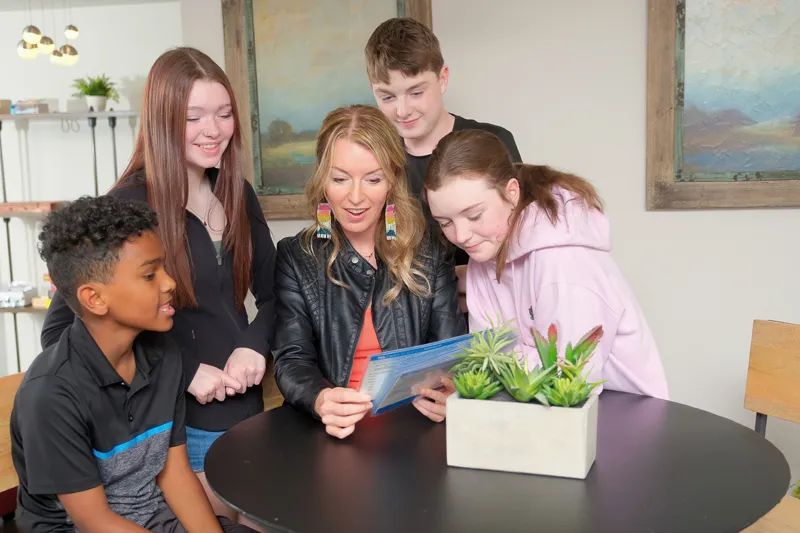
Leading with Compassion
Billings woman’s kindness spreads across the world
Thirteen years ago, Lacey Maloney found herself amid a sea of photographs, each one a snapshot of a child's life trapped in poverty. The photos were sprawled across tables at her church, and for $43 a month, her family could help change the path of at least one.
As Lacey sifted through them, her 3-year-old daughter’s tiny fingers grasped the photo of a girl her age from Ethiopia named Leyuwork. Maggie told her mom she thought the girl’s vibrant red dress was pretty. As Lacey looked at the photo, a wave of compassion washed over her. The girl’s needs were simple — money for food, education and medical care.
Little did Lacey know that this 4-by-6-inch photo would light a fire in her that would bring big and beautiful changes not only to Leyuwork’s life, but to her own.
It was 2011, and in Lacey’s words, her family had just endured “the most horrific year.” She had two children under the age of 3 and one on the way when her son, Sawyer, was discovered in his crib clinging to life.
“He was a near SIDS baby,” Lacey says. “I found him and he had just moments left.” She adds, “Because my son was in ICU, we went from having no debt to having medical debt up to our eyeballs.” On top of that, she says, “Things kept happening. Our cars broke down. We drove into the garage one day and a water pipe had burst with water spraying everywhere. It was just a wild year of financial catastrophes.”
The thought of sponsoring a child during it all felt overwhelming.
“I remember saying, OK, Lord. We will sponsor a child because if we are going to go down, we are going to go down for something that matters,” she says.
Lacey’s family started sponsoring Leyuwork in 2011 through Compassion International, a child advocacy ministry that pairs people of means with children living in extreme poverty. To make room in the budget, Lacey agreed to give up coffee — not fancy coffee from a kiosk, but the ground coffee that perpetually sat in her pantry.
She never had to give up a single drop.
After the family said “yes,” Lacey says her husband got a new job that doubled his income, the medical debt was paid off and before they knew it, they were sponsoring more children. “Every time we paid off a debt, we sponsored another child,” Lacey says.
A few years after Lacey felt the pull to sponsor children through Compassion International, her heart started to focus on a bigger commitment — adoption.
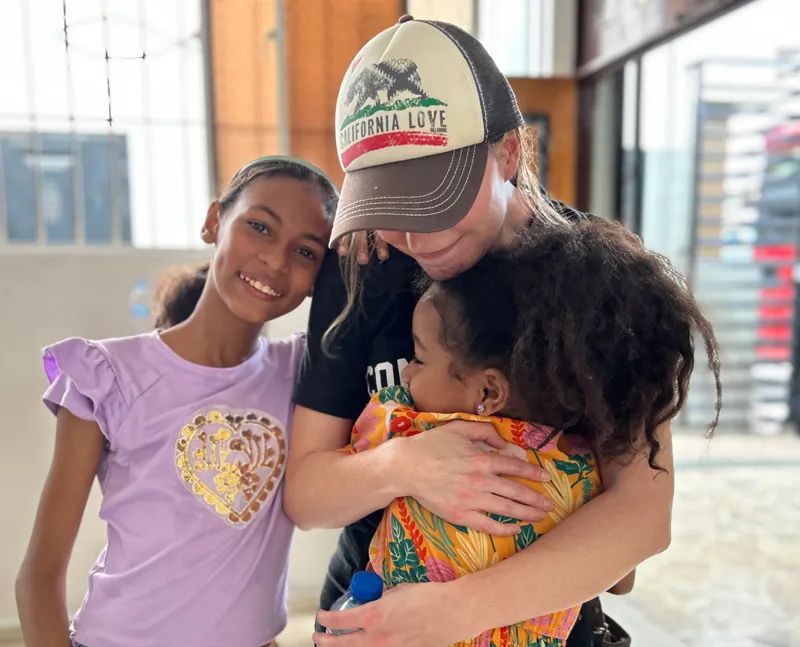
Her church had been starting to focus on Ethiopia in its charitable works and she was watching as several families started the process of adopting orphans from the war-torn country.
One morning when she was in prayer, she says, she looked to the wall where her kids’ portraits were hung and heard the words on her heart, “There will be a fourth picture here.” She remembers, “I just had this overwhelming feeling of gratitude.”
That fourth picture would be Abraham, a toddler from Ethiopia whom Lacey and her husband would personally travel to pick up in 2014.
“When we went to Ethiopia, I knew we were going to be taking one of their finest,” Lacey says. “They will be giving us one of their children.” She made a vow to repay that debt.
Since she could only spend two hours a day with Abraham, better known as Ah-bee, she decided to use the extra time in Ethiopia to see as many ministries on the ground as possible.
“Many of these other ministries we visited were being run by adults who had at one time been sponsored as children through Compassion. That was shocking to me,” Lacey says. “Compassion was raising up these strong leaders who were changing their country.”
On one of her tours, she met a little boy in Ah-bee’s orphanage named Yonas. He was one of two little boys who had yet to be adopted. Lacey remembers thinking, “I’ve got to meet them because I need to see if I can get these little guys adopted.” After flipping through Yonas’ file she says, “There was a thumbnail picture of a woman. I asked, ‘Who is this?’ They told me, that’s his mom.” After questioning why a boy with a mother would be in an orphanage, she discovered a harsh reality.
“I learned it’s super common in Ethiopia for women to give their children to an orphanage, not because they don’t love them, but because they can’t feed or educate them,” Lacey says. While education in Ethiopia is free, it costs $30 a year for books and uniforms.
“For a mom that is earning $20 a month washing her neighbor’s laundry — because she has no education or she was abandoned or ended up with a baby and the dad skipped town — her choices are limited. That story, his life, totally changed mine.” Lacey says she remembers putting her head on the desk and crying. “I thought, this is so unfair. Just because I was born in the U.S., I’m taking one of these children and she’s giving hers away,” she says.
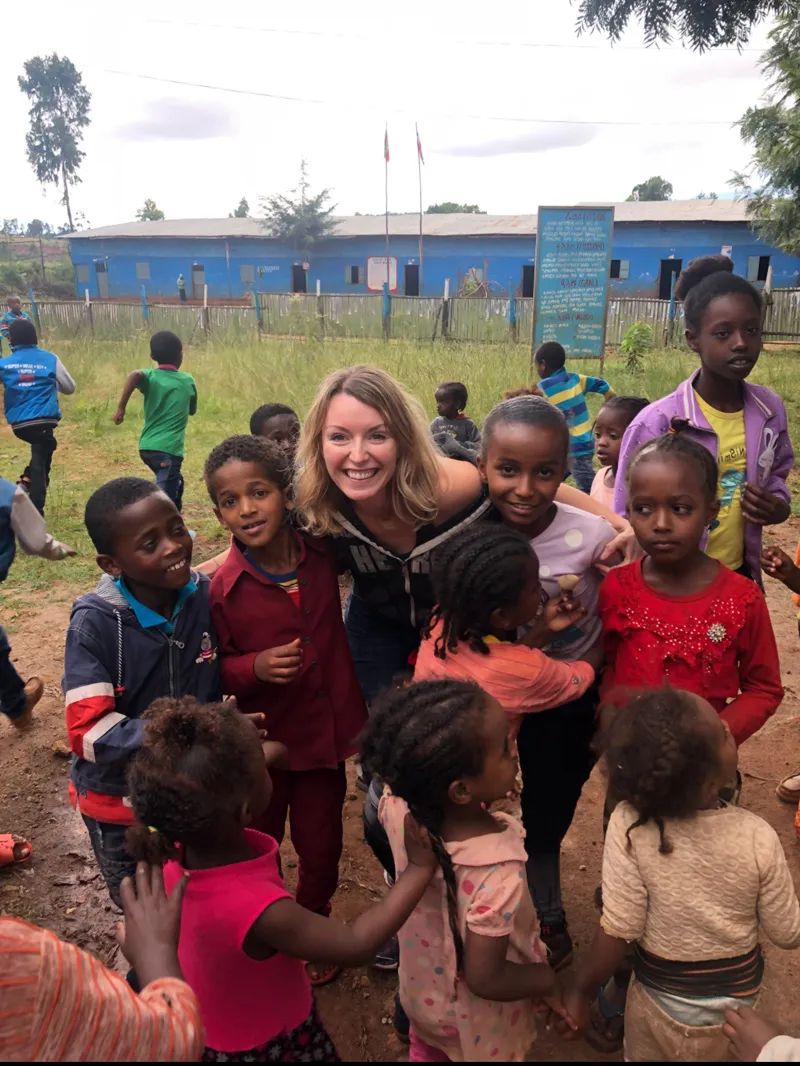
Lacey ended up hiring a private investigator to find the woman. She figured out a way to reunite the boy with his mother and financially care for her in the process.
“Most women aren’t going to choose to give up their children,” Lacey says. “It's life circumstances, and if we could prevent that kind of pain for their children or for them? I mean, if the tables were turned, wouldn’t we want somebody to do that for us?”
She started to see firsthand that if she could increase the number of children being sponsored through Compassion, she would decrease the number of children in the country’s orphanages.
“I started shouting it from the rooftops to anybody who would listen,” Lacey says. “When you sponsor a child, you’re keeping them with their birth family. To me, that’s so personal. Let’s keep kids out of orphanages.”
By 2016, Harvest Church offered Lacey a job in global outreach. In addition to organizing mission trips, she could continue the work to increase child sponsorships.
“Once I started working for Harvest, then I started sending teams over to Ethiopia,” Lacey says.
In 2019, she made the trip with her then 12-year-old daughter, Maggie. It would be the first time Maggie would meet Leyuwork, the little girl in the red dress she had urged her mom to sponsor all those years ago. Lacey grins as she shares a photo of the meeting. The girls were all smiles, and as Lacey tells it, they never quit holding hands.
“It was so humbling,” Lacey says with tears starting to well in her eyes.
During the trip, Lacey says she felt a pull on her heart to visit one of the state-run orphanages. One of her contacts in Ethiopia warned her against it.
“He told me, ‘Lacey, I am going to warn you. It will be psychologically hard for you.’” She remembers saying, “I feel like God is asking me to do this. How can I talk about orphan prevention if I don’t really know what the inside of an Ethiopian orphanage looks like?”
She says she’ll never forget walking through the government-run orphanage in the city of Addis Ababa.
“It was the closest to hell that I’ve ever been in my life. I’ve never seen human suffering like that before,” she says. She saw multiple children sharing a crowded crib, filthy conditions and a lack of care.
“You’d walk up to a crib and the child would be staring into space,” she says. “You’d try to get their attention and then they’d finally look at you. Nobody had even looked them in the eyes for who knows how long. It was so heartbreaking.”
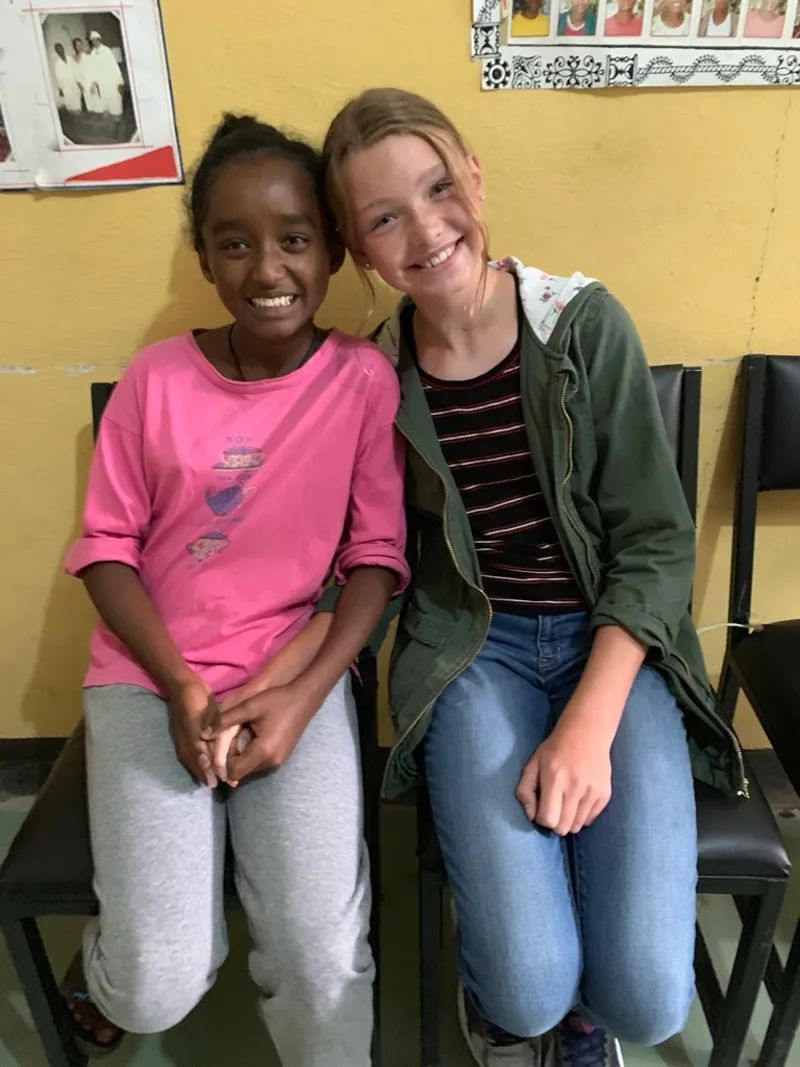
She remembers asking those at the orphanage, “Can we hire nannies?” The response was clear. “They told me, ‘Please. We need seven nannies just to be fully staffed.’” She also learned to hire one would be a mere $100 a month.
When she returned to Billings, one of her first stops was to then Pastor Vern Streeter at Harvest Church.
“She comes home and sits down with me and tells me about it,” Vern says. “Well, I’m a puddle. There was a massive need and a lack of resources to be able to help these kids.” So, the next Sunday, he shared the story from the pulpit.
With the money raised that one day, Lacey says, “We hired 14 nannies plus a full-time nurse.” She goes on to say, “The summer before last, I got to go back to the orphanage. The atmosphere was night and day different. It was like a well-run daycare and the kids, even the little ones, weren’t running to us. They were running to their nannies. It was just awesome.” She gets a little emotional as she says, “Those kids have a shot at a future.”
The one thing that stuck with Pastor Vern was that Lacey doesn’t try to solve every problem she sees on her own. “She’s a very good leader, but she is leading from a place of a pure heart. She ends up with these great partners, these friends that she develops who help her get stuff done.”
Meharatab Abate is one of those friends. As a child he was sponsored through Compassion International when his father died, leaving his mom with five children under the age of 6. He met Lacey 10 years ago when she came to visit one of her sponsored children and hosted her on the visit.
“He started this organization where he helps women,” Lacey begins. “His goal is that no woman would be on the streets of Ethiopia begging with her children for survival.”
It wasn’t long ago that she helped give his ministry a major boost. Lacey knew of a woman named Eden who ran a business making leather bags.
“She employs former street teens and prostitutes, and she gives them safe, dignified employment and they make beautiful bags,” Lacey says.
When the pandemic broke out, Lacey says, “She was on my heart. I reached out and asked if there was anything I could do. She just kept saying, Lacey, we just want to work. We need orders. Nobody is buying purses right now.”
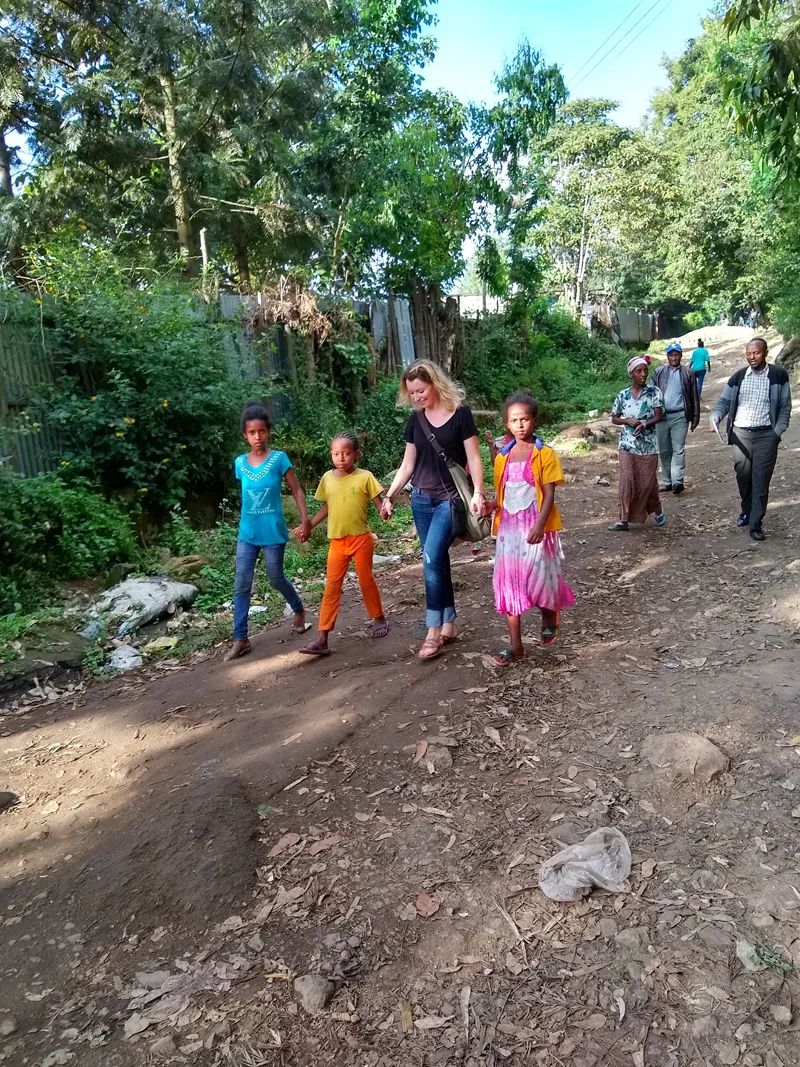
Meantime, the women Meharatab was trying to help could no longer beg in the streets.
Lacey shipped several dozen leather bags to the United States, and thanks to a Facebook post, they were sold in record time.
“And then, with the profits, we gave Meharatab’s ministry a bunch of money and he helped over 50 women get off the streets and start their own businesses,” Lacey says. “Without exception, whenever you ask a woman, how did you end up on the streets, they immediately start crying because it is always a story of abandonment or death of a loved one. There are no social systems in place in Ethiopia and so they end up desperate.”
“She doesn't see the poverty in a child or a person's life but the potential,” Meharatab says.
When asked how Lacey has personally impacted his life, he responded by telling story after story of blessings. He shared how Lacey supported him financially so he could get his master’s degree in public management and policy. The degree and the confidence he earned, he says, helped launch his nonprofit and ultimately rescued hundreds of women and children from the streets.
He also spoke of her impact at the state-run orphanage and the renovations she sparked at a dormitory for boys with special needs. Because of a lack of resources, he says the boys used to be locked in a single room without much care. Today, they have new living quarters and have hired a therapist to do follow-up visits and physical therapy.
“These boys are now learning to interact, exercise and even play outside,” he says. “She is making a huge difference in my country and in whatever she puts her heart into.”
In 2022, Lacey started working for Compassion International part-time as a church relationship manager, helping connect churches in Montana and Utah with children in need. And in 2023, she made the leap to a full-time job. She now works to secure large donors who can help sponsor not one child, but hundreds at a time by creating Compassion International project sites.
For $30,000, a church in a poverty-ridden area can become a Compassion project, allowing them to enroll 250 of the most vulnerable children for sponsorship.
“It provides so much. It gives all those 250 kids medical checkups. It gets them all their school fees paid and school uniforms and then it hires staff for the first year,” Lacey says. The kids are taken care of with the hope that they will have a permanent sponsor within the year.
Lacey has raised enough money over the years to get 20 churches established as project sites. While she doesn’t like talking about numbers, her grand fundraising total is in the seven-figure range. The timing of it all is not lost on Lacey. Right now, Africa is in the middle of the worst global food crisis in 70 years.
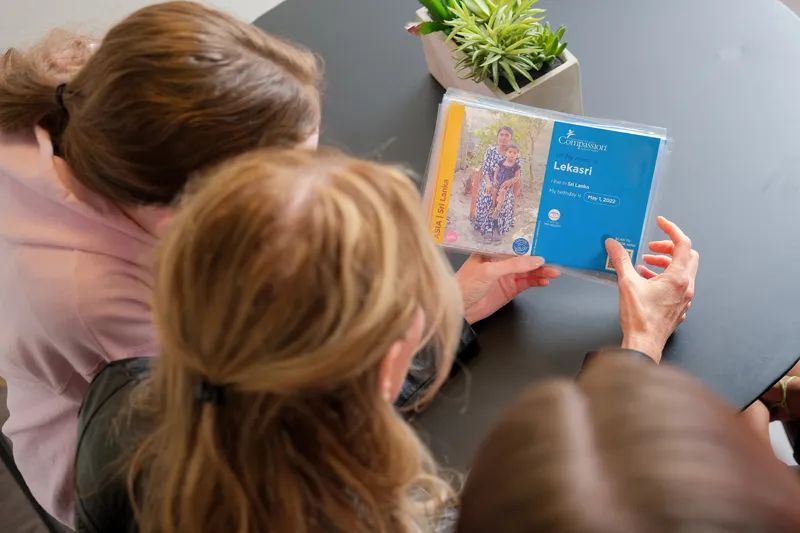
“People are literally starving to death in Ethiopia right now,” Lacey says. She goes on to explain that the war in Ukraine caused grain prices to escalate. That paired with a civil war and the after-effects of Covid mean federal reserves have been spent leaving nothing for emergency needs. “I hung out with a pastor from Uganda for a couple of days in October and on a weekly basis they are conducting funerals for children,” she says.
While Africa will always be close to Lacey’s heart, it’s not the only place she’s made an indelible mark. When war broke out in Ukraine, Vern Streeter urged Lacey to look into ways their church could help.
“I basically looked on a Google map and I found several churches in Poland and just prayed,” Lacey says. “There was one church that just kept popping up and it was this tiny 100-person church that gave everything they raised away.”
She sent an email with the help of Google Translate. After convincing the pastor of the small church in Warsaw that this was the real deal via a Zoom meeting, she started to learn his story. Thirty years ago, the pastor and his wife had planted a handful of churches in Ukraine. When the war began, that meant those five churches that they had deep ties with were in danger. The pastors of those churches couldn’t leave the country, but with Lacey’s help, Harvest ended up renting a home for the women and children. They also sent money so the pastors could bring aid to the war’s frontlines.
“These men, these godly men, are going to the frontlines and giving people water, generators and winter clothes, because the Russians were bombing the electrical grid,” Lacey says. “Through Harvest, through these women, through these pastors, we were getting help into Ukraine.”
In May, Lacey plans to take her youngest daughter, Violet who is 13, to Poland. “We will finally get to meet these guys face to face,” Lacey says. It’s only natural, Lacey says. Maggie and Sawyer have both joined her on trips to Ethiopia, now it is Violet’s turn to see the world in a different way.
“My hope is that my kids will never look at a problem and say that we can’t do something about it,” she says.
These days, Lacey spends every other week flying to all corners of the world. Sometimes she’s meeting with potential donors. Other times, she is flying to places like the Dominican Republic to see firsthand how those donors’ dollars are being used. Along the way, you can bet she will be hugging on children and making friends.
“I get so much joy seeing other people’s joy in giving and changing people’s lives,” Lacey says. “Our lives have purpose.”
She knows lives depend on each trip. Right now, Compassion International has more than 100,000 children from 29 countries waiting to be sponsored. You’d think that after dedicating more than a dozen years to a cause, she’d slow down or grow a bit tired with the never-ending problem of poverty. Yet, her desire to help never seems to wane.
“It keeps me up at night,” she says. “It's like a fire in my belly. It's never gone away.”
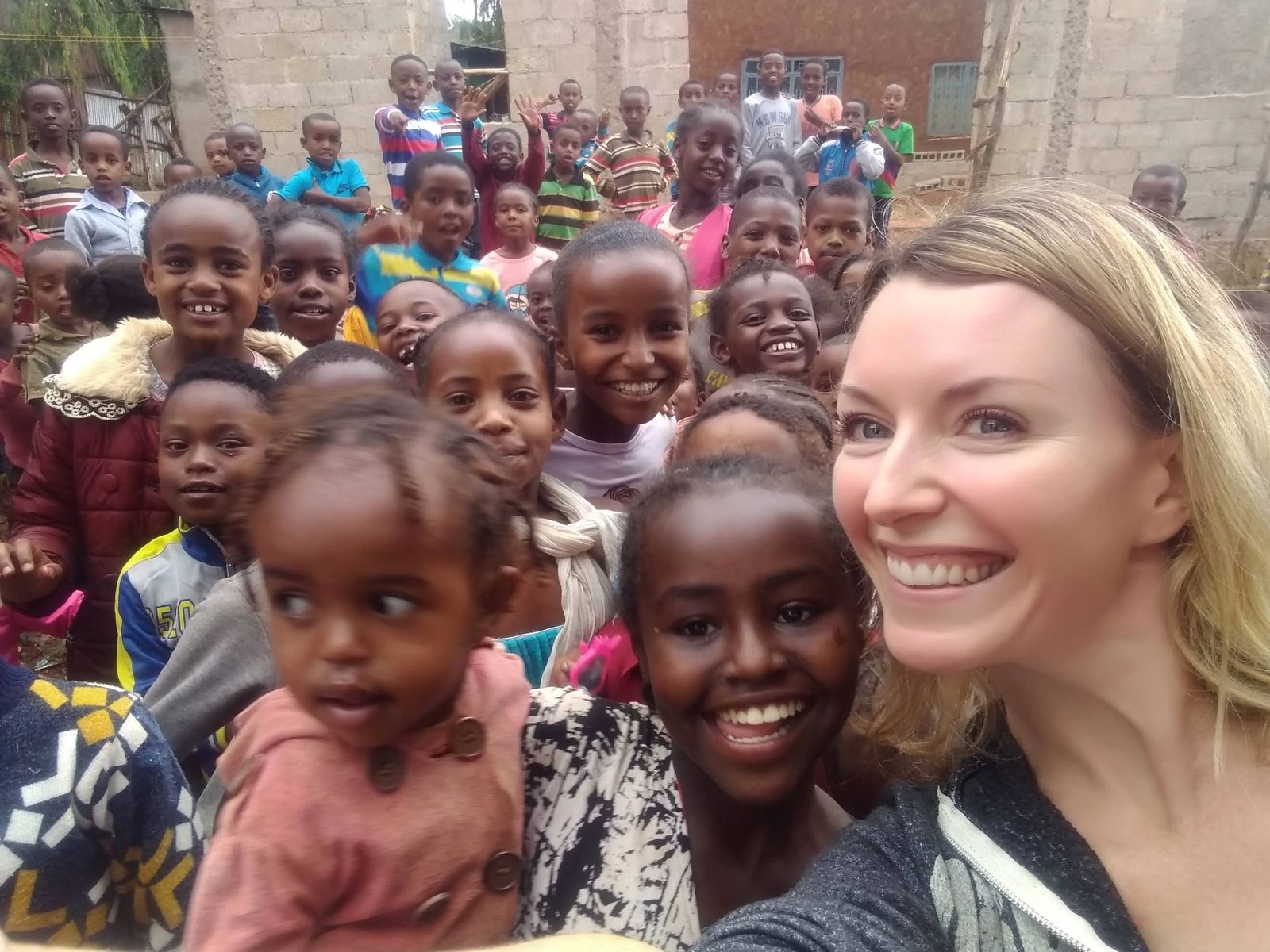
Maddie & Tsegreda
As the daughter of Pastor Vern Streeter, Maddie Madden has always had a heart for helping others. That’s why it came as no surprise when, upon graduating college, she decided to sponsor an 8-year-old Ethiopian girl despite her uncertain finances.
“There was something about her that caught my eye,” Maddie says about her sponsored child, Tsegreda.
Tsegreda is now 13 and the two share frequent letters. Not long after Maddie sponsored her, the two met while Maddie was on a mission trip.
“I immediately broke down in tears. It was the most powerful thing ever,” Maddie says. She learned that the girl’s mom endured some health issues that landed them with financial hardships.
“Her mom was weeping and telling me thank you for all that I had done for her and her family,” Maddie says.
When she thinks of that leap of faith she made going on six years ago, Maddie will tell you she’s the one who feels blessed. “It’s been a life changer.”
LEARN MORE about Compassion International and how to sponsor a child by visiting compassion.com











